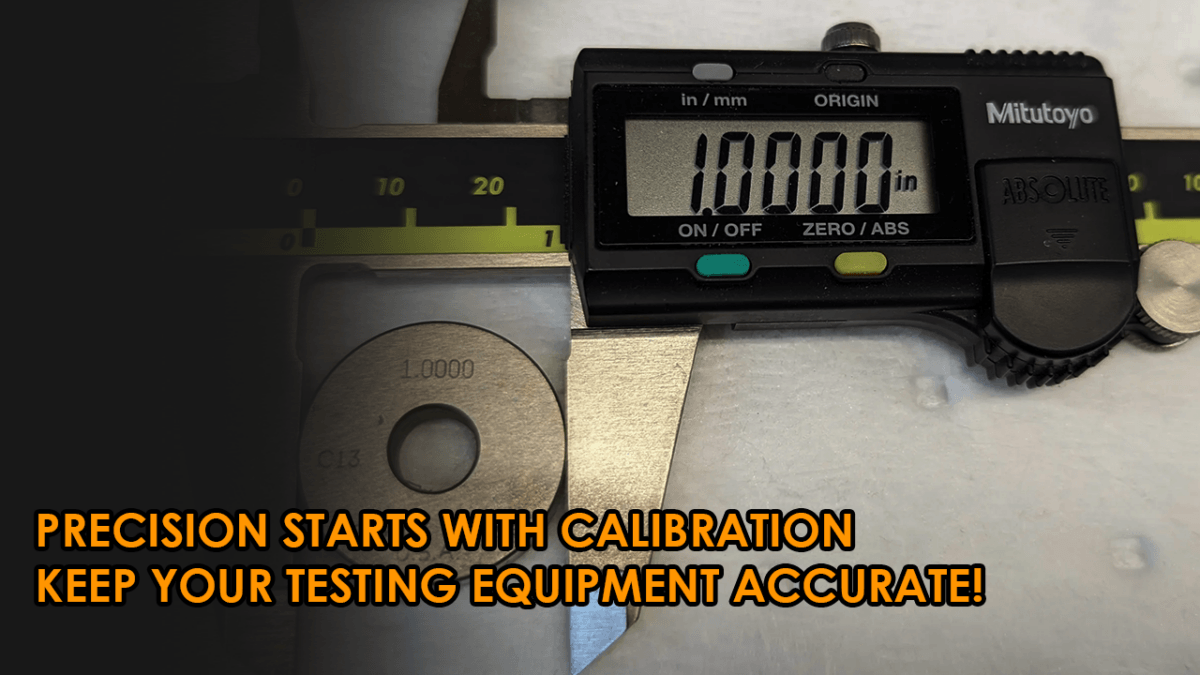Blog
7 Signs It’s Time to Calibrate Your Testing Equipment
7 Signs It’s Time to Calibrate Your Testing Equipment
Introduction: Why Calibration Matters
In material testing, accuracy is everything. Over time, even the most advanced machines can lose precision due to regular wear, environmental factors, or heavy usage. Knowing when to calibrate your testing equipment is critical for ensuring reliable results, regulatory compliance, and operational efficiency. Ignoring calibration can lead to incorrect data, failed audits, and costly rework. In this guide, we’ll explore seven key signs it’s time to calibrate your testing equipment and how Teur Pro Group can support your calibration needs.
1. Inconsistent Test Results
If your test results vary significantly under the same conditions or with identical samples, it may indicate equipment drift. Inconsistent data is a red flag that it’s time to calibrate your testing equipment to restore accuracy and reliability. A lack of repeatability in tests can lead to faulty material approvals and costly project delays, making regular calibration essential for quality control.
2. Error Messages or Malfunctions
Modern machines often display error codes or alerts when something is off. Frequent malfunctions, unexpected shutdowns, or display issues suggest internal sensor misalignment or load cell drift, requiring immediate calibration. If error messages persist, it could mean mechanical or electronic issues that need to be diagnosed through calibration testing.
3. Visual Wear and Tear on Components
Visible damage or wear on parts like load cells, platens, grips, or sensors can affect equipment performance. If you notice corrosion, cracks, or loose fittings, it’s wise to calibrate your testing equipment before accuracy deteriorates further. Small mechanical defects can accumulate over time, leading to incorrect force application and misaligned readings.
4. Failed Compliance or Audit Results
If your lab fails to meet ISO 17025, ASTM, or EN standards during audits or certifications, calibration may be overdue. Regular calibration ensures that your equipment remains audit-ready and compliant with UKAS and industry regulations. Failing compliance checks can lead to legal consequences, lost contracts, and reputational damage, making proactive calibration an investment in your company’s credibility.
5. After Intensive Usage or Harsh Conditions
Frequent usage, especially in high-load testing environments or field conditions, can accelerate equipment drift. Exposure to dust, temperature fluctuations, or humidity also increases the need for more frequent calibration. For industries working with asphalt, aggregates, and concrete, harsh materials can lead to faster wear on key components, necessitating more frequent calibration schedules.
6. Exceeded Recommended Calibration Interval
Most manufacturers recommend annual or biannual calibration, depending on equipment type and usage. If it’s been over 12 months, it’s time to schedule a professional calibration to prevent inaccuracies. Some industries, especially construction and aerospace, may require quarterly calibration to meet high-precision standards. Keeping up with recommended calibration timelines ensures that all test results remain legally and scientifically valid.
7. New Project or Client Requirements
Starting a high-profile project or working with a new client may require certified calibration certificates. Ensuring your testing equipment is calibrated boosts client confidence and regulatory compliance. Many international projects demand proof of recent calibration records, and failing to provide them could result in delays or contract cancellations.
Why Choose Teur Pro Group to Calibrate Your Testing Equipment?
Teur Pro Group offers expert services to calibrate your testing equipment, providing:
- ISO 17025-Compliant Calibration
- On-Site and In-Lab Services Across the UK
- Traceable Calibration Certificates for audits
- Preventative Maintenance and diagnostic support
- Fast Turnaround and Competitive Rates
- Industry-Specific Calibration Solutions, customized for concrete, asphalt, aggregates, and metals testing.
Conclusion
If you notice any of these signs, it’s time to calibrate your testing equipment. Regular calibration ensures accuracy, compliance, and equipment longevity. Don’t let minor issues become costly problems – trust Teur Pro Group to keep your equipment in top condition.
By partnering with a trusted calibration service provider, companies can minimize downtime, reduce material waste, and maintain high standards of testing precision and reliability. Investing in timely calibration services not only extends the lifespan of your equipment but also safeguards the integrity of your test results.
Contact us today to schedule your calibration! Teur Pro Group Contact
Follow us on LinkedIn for updates and industry insights! Teur Pro Group LinkedIn

